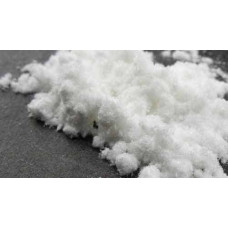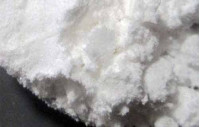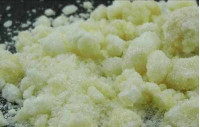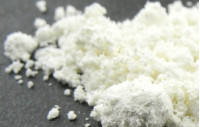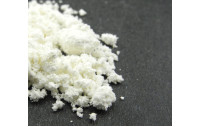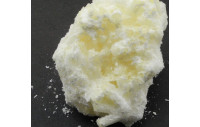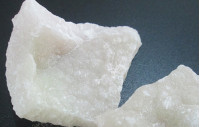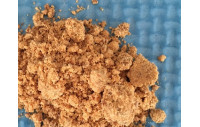
Buy Ethylphenidate for sale online from USA vendor
Discount program: 5% OFF for the second order, 7% OFF for the third order.
Shop with us securely! We offer re-shipment guarantees.
We always provide new, legal products of impeccable quality.
Please make sure that the product is legal in your country and not under any restrictions before ordering.
We do not sell pharmaceutical products or controlled substances.
Table of Contents
- Ethylphenidate
- The History of Ethylphenidate
- Effects of Ethylphenidate
- Dosage
- Legal Status
- Pharmacology
- Chemistry
- The Trip
- Conclusion
- FAQ
Ethylphenidate
Ethylphenidate, also known by its chemical name ethyl 2-phenyl-2-piperidin-2-ylacetate, is a synthetic stimulant drug that belongs to the substituted phenethylamine and piperidine classes. It is structurally related to methylphenidate, commonly found in medications like Ritalin and Concerta, used to treat attention deficit hyperactivity disorder (ADHD). However, in most countries, Ethylphenidate is not approved for medical use and is primarily encountered as a research chemical or recreational substance.
The History of Ethylphenidate
Ethylphenidate emerged in the early 2010s as a research chemical, often marketed as a legal alternative to other stimulants like cocaine or amphetamines. Its effects were reported to be similar to those of methylphenidate, producing increased alertness, focus, and euphoria. The substance gained popularity among individuals seeking recreational stimulant experiences and those seeking cognitive enhancement.
Due to its relatively recent introduction to the market, limited information is available regarding its long-term use and potential risks. Research on Ethylphenidate is scarce compared to well-established substances like caffeine or its parent compound, methylphenidate.
Effects of Ethylphenidate
The effects of Ethylphenidate can vary widely depending on several factors, including the individual's tolerance, dosage, and method of consumption. Some of the ordinary reported effects include:
-
Increased Alertness:
Ethylphenidate is known for its stimulating properties, which can lead to increased alertness and wakefulness. -
Euphoria:
Users often say a sense of joy and heightened mood while under the influence of Ethylphenidate. -
Improved Concentration:
Similar to methylphenidate, Ethylphenidate may enhance focus and concentration, which is why it attracted the interest of some students and professionals. -
Increased Heart Rate and Blood Pressure:
Ethylphenidate can elevate heart rate and blood pressure as a stimulant, which may pose risks to individuals with pre-existing cardiovascular conditions. -
Insomnia:
Like many stimulants, Ethylphenidate can disrupt sleep patterns, potentially leading to insomnia if taken too close to bedtime. -
Appetite Suppression:
Some users report a reduced appetite while using Ethylphenidate, which may contribute to weight loss. -
Paranoia and Anxiety:
In some cases, Ethylphenidate can induce paranoia, anxiety, or even panic attacks, particularly at higher doses or prolonged use. -
Addiction Potential:
Ethylphenidate has the potential for dependence and addiction, as users may develop a tolerance and experience withdrawal symptoms when attempting to quit.
Dosage
The appropriate dosage of Ethylphenidate can vary widely based on individual tolerance and the desired effects. It's essential to start with a low dose and gradually increase it if needed while invariably staying within safe limits. The route of administration (oral, nasal, or intravenous) also affects the onset and intensity of the effects.
Since Ethylphenidate is not approved for medical use and is often sold as a research chemical, there are no standard dosing guidelines. Users should exercise caution and prioritize harm-reduction practices when considering experimentation with this substance.
Legal Status
The legal status of Ethylphenidate varies from country to country and can change over time due to evolving regulations. Ethylphenidate is not approved for medical use in many places and is classified as a controlled substance or a prescription-only medication. In some cases, it falls under analogue laws, which means it may be illegal if chemically similar to controlled substances.
To avoid legal issues, it is essential to research and understand the specific laws and regulations governing Ethylphenidate in your region before attempting to purchase or possess it. Engaging in the illicit sale or distribution of Ethylphenidate can result in severe legal consequences.
Pharmacology
Ethylphenidate's pharmacology is similar to that of its parent compound, methylphenidate. It primarily works by blocking the reuptake of norepinephrine and dopamine in the brain, leading to increased levels of these neurotransmitters. This mechanism of action is responsible for the stimulant effects, such as heightened alertness and euphoria.
The pharmacokinetics of Ethylphenidate may vary depending on factors like dosage and route of administration. Users should be aware that combining Ethylphenidate with other substances, such as alcohol or other drugs, can increase the risks associated with its use.
Chemistry
Ethylphenidate is a synthetic compound created through chemical synthesis. Its chemical structure comprises a piperidine ring, a phenethylamine moiety, and an ethyl ester functional group. The synthesis of Ethylphenidate typically involves chemical reactions that modify the configuration of precursor compounds to produce the final product.
The exact chemical processes and precursors used to manufacture Ethylphenidate can vary, and these details are often closely guarded secrets within the illicit drug manufacturing community. This lack of transparency and quality control underscores the inherent risks associated with using substances like Ethylphenidate, as there is no way for consumers to know precisely what they are ingesting.
The Trip
"Trip" is more commonly associated with hallucinogenic substances like LSD or psilocybin mushrooms. Ethylphenidate, however, is not typically considered a hallucinogen. Instead, it is primarily classified as a stimulant. Therefore, the experiences associated with Ethylphenidate use are often called "highs" rather than "trips."
During an Ethylphenidate "high," users may experience increased energy, improved focus, and heightened sociability. These effects can be pleasurable for some individuals but can also come with risks, such as overstimulation, paranoia, and addiction.
Conclusion
In conclusion, Ethylphenidate is a synthetic stimulant compound with a complex history, variable effects, and a legal status that varies from place to place. Its chemical structure, pharmacology, and outcomes are similar to methylphenidate, a well-known medication for treating ADHD. However, in most countries, Ethylphenidate is not approved for medical use and is often encountered as a research chemical or recreational drug.
Before considering Ethylphenidate, it is essential to be aware of the legal implications and potential health risks associated with its consumption. Misuse or uninformed use of Ethylphenidate can lead to harmful consequences, including addiction, cardiovascular issues, and mental health challenges. It is crucial to prioritize harm reduction practices, educate oneself about the substance, and when in doubt, seek guidance from medical professionals or addiction specialists. Ultimately, the safest approach is to avoid using unregulated and potentially hazardous substances like Ethylphenidate.
FAQ
1. What is Ethylphenidate?
Ethylphenidate is a synthetic compound that belongs to the phenethylamine class of chemicals. It is a research chemical and is structurally related to the prescription medication methylphenidate, commonly known as Ritalin.
2. What is the primary use of Ethylphenidate?
Ethylphenidate is not approved for any medical or therapeutic use. Its primary use is for research purposes, especially in laboratories, to study its effects and properties.
3. Is Ethylphenidate legal?
The legality of Ethylphenidate varies from country to country and even within different regions of the same country. It is important to research and understand the legal status of Ethylphenidate in your specific location before acquiring or using it.
4. How is Ethylphenidate typically administered or consumed?
Ethylphenidate is usually sold as a white powder or crystalline substance and can be ingested in various ways, including oral consumption, insufflation (snorting), or intravenous injection. However, the method of administration can carry different risks and effects.
5. What are the effects of Ethylphenidate?
The effects of Ethylphenidate can vary depending on the dosage, individual tolerance, and method of administration. Common effects include increased alertness, improved focus, enhanced energy, and potential euphoria. It can also have side effects like anxiety, increased heart rate, and restlessness.
6. What are the potential risks and side effects of Ethylphenidate use?
Ethylphenidate use can lead to several risks and side effects, including but not limited to: anxiety, paranoia, increased blood pressure, heart palpitations, insomnia, reduced appetite, and addiction potential. It may also have unknown long-term effects.
7. Is Ethylphenidate addictive?
Ethylphenidate has a potential for addiction, as it affects the brain's reward pathways. Individuals who use it recreationally should be cautious and aware of the risk of developing a dependence on the substance.
8. Can Ethylphenidate be mixed with other substances?
Mixing Ethylphenidate with other substances, including alcohol or other drugs, can be dangerous and increase the risk of adverse effects. It is essential to be cautious and informed about potential drug interactions.
9. How can I stay safe if I choose to use Ethylphenidate?
If you decide to use Ethylphenidate, it is crucial to do so responsibly. Start with a low dose, avoid mixing it with other substances, and be aware of the legal status in your area. Always prioritize your health and safety.
10. Is Ethylphenidate the same as Ritalin or methylphenidate?
No, Ethylphenidate is not the same as Ritalin or methylphenidate, although they share structural similarity. Ritalin is a prescription medication used to treat attention deficit hyperactivity disorder (ADHD), while Ethylphenidate is a research chemical with different properties and legal statuses.
11. Can I purchase Ethylphenidate online?
The availability of Ethylphenidate for purchase online may vary, and its legality can be questionable. It is essential to exercise caution and be aware of the legal and safety implications when considering online purchases.
12. Where to get Ethylphenidate?
You can buy Ethylphenidate for sale online from the best supplier at Flakkaforsale.online
To prepare the content, the following materials were used:
- FDA Substance Registration System
- Hazardous Substances Data Bank. National Library of Medicine. 28 August 2008. Retrieved 22 August 2014. 3,4-Methylenedioxymethamphetamine
- Liver transplant modulates gut microbial dysbiosis and cognitive function in cirrhosis. PDF . By HoChong Gilles, Scott C Matherly, Mohammed S Siddiqui, Puneet Puri...
- Differential impact of hyponatremia and hepatic encephalopathy on health-related quality of life and brain metabolite abnormalities in cirrhosis . By Jasmohan Bajaj
- An overview of alcohol and other drug issues
- Medicating the mind: a Kantian analysis of overprescribing psychoactive drugs B A Manninen
- The pharmacological basis of opioids Carla Ghelardini, Lorenzo Di Cesare Mannelli and Enrica Bianchi
- Ask Dr. Shulgin Online ARCHIVE: June 3, 2004
- Inhibition of plasma membrane monoamine transporters by β-ketoamphetamines. Nicholas V Cozzi, Michael KSievert, Alexander T Shulgin, Peyton JacobIII, Arnold Eruoho
- Schedules of Controlled Substances: Placement of Methylone Into Schedule I
- Bioanalysis of new designer drugs. Wohlfarth A, Weinmann W.
- New Psychoactive Substances (including synthetic cannabinoids, mephedrone, and more)
- Future Synthetic Drugs of Abuse. Donald A. Cooper. Drug Enforcement Administration McLean, Virginia
- Designer drugs: a medicinal chemistry perspective. F. Ivy Carroll Anita H. Lewin S. Wayne Mascarella Herbert H. Seltzman P. Anantha Reddy
- Synthetic cannabinoids in Europe
- Pharmacological Effects of MDMA in Man. By Enno Freye
- Drug Use in Relation to Outcome of Mammography Screening. von Euler-Chelpin M, Wu W, Vejborg and Lynge E
- DEA Drug Scheduling
- Electrophysiological Effects of Trace Amines on Mesencephalic Dopaminergic Neurons.Ada Ledonne, Nicola Berretta, Alessandro Davoli, Giada Ricciardo Rizzo, Giorgio Bernardi and Nicola Biagio Mercuri
- Electrophysiological evidence for a reciprocal interaction between amphetamine and cocaine-related drugs on rat midbrain dopaminergic neurons.Scarponi M, Bernardi G, Mercuri NB.
- Overdose of Drugs for Attention-Deficit Hyperactivity Disorder: Clinical Presentation, Mechanisms of Toxicity, and Management. Henry A. Spiller, author Hannah L. Hays Alfred Aleguas.
- Dose-dependent effectiveness of wheel running to attenuate cocaine-seeking: impact of sex and estrous cycle in rats. Peterson AB, Hivick DP, Lynch WJ.r.
- FDA Drug Safety Communication: Safety Review Update of Medications used to treat Attention-Deficit/Hyperactivity Disorder (ADHD) in children and young adults
- ADHD Medications and Risk of Serious Cardiovascular Events in Young and Middle-aged Adults
- Controlled Substances Act
- The Art of Drug Synthesis (Wiley Series on Drug Synthesis)
- Cannabis: domestic cultivation widespread
- A review of the influence of functional group modifications to the core scaffold of synthetic cathinones on drug pharmacokinetics
1kg $1590
500g $1199
100g $600
out of stock
1kg $1690
1kg $1890
200g $590
1kg $1590
1kg $1590
1kg $1590
100g $840
1kg $1590

